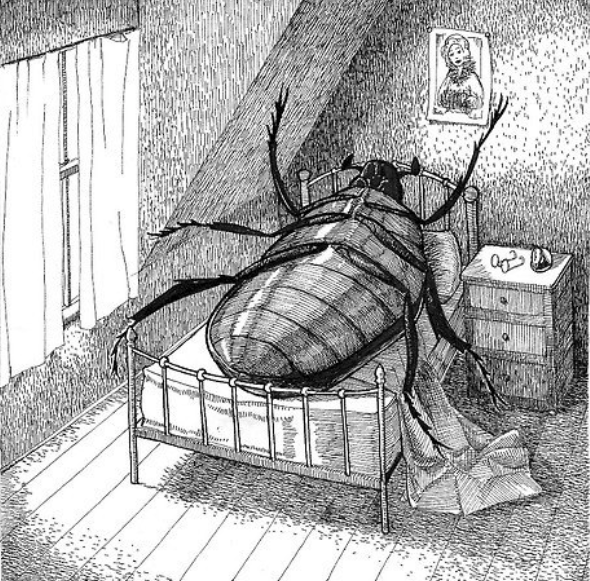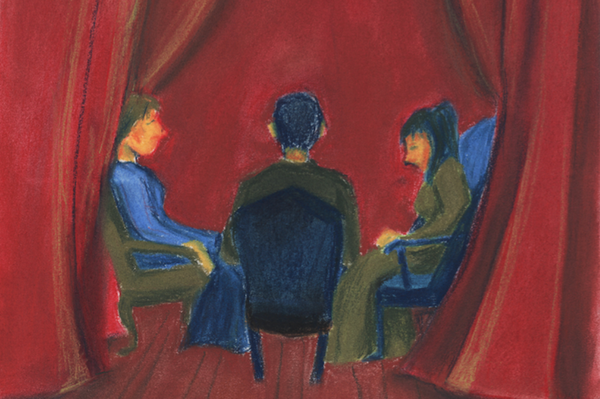Kafka's Metamorphosis: Gregor Samsa's Dual Transformation

I cannot make you understand. I cannot make anyone understand what is happening inside me. I cannot even explain it to myself.
Unveiling the Narrative in 'Metamorphosis'
In Franz Kafka's "Metamorphosis", the narrative unfolds with striking simplicity. Gregor Samsa, once a dedicated salesman, awakens one morning to a bizarre transformation into a grotesque insect. This abrupt physical metamorphosis initiates a profound alienation from his own family.
Gregor's physical transformation marks only the beginning of his harrowing journey. He grapples with loss of control over his limbs, the inability to communicate in human speech, and even the freedom to leave his bed. His behaviour gradually becomes insect-like as he develops a preference for decaying sustenance over human food, such as milk. With his inability to provide financial support to his family, the affection of his loved ones quickly turns to aversion, symbolizing how societal roles can define our identities.
Amid this turmoil, Gregor embarks on a deep introspection of his former life, reminiscing about his relationships with his family. In this process, his metamorphosis takes on a deeper meaning as he grapples with concepts such as "reflection" and "choice". Ultimately, as the story reaches its conclusion, he rejects his insectoid identity, choosing a path of self-imposed starvation and embracing the solace of death.
From this perspective, we witnessed a dual transformation in Gregor's character. While his physical transformation propels him from a human form to that of an insect, his ideological evolution represents a poignant journey in the opposite direction - from insect to human.
Conforming or Choosing: Gregor's Internal Struggle
In contemporary society, there's a tendency to reduce "humanity" to mere aggregations of functions and roles, both in how we perceive ourselves and how others perceive us.
In the wake of his metamorphosis, Gregor's initial concerns revolve around work: "How can I go to work?" and "Will my employer and superiors be displeased with my absence?" Remarkably, his foremost concern doesn't revolve around his newfound insect form. In this context, Kafka underscores how individuals often unquestioningly conform to established frameworks, neglecting their own autonomy and the freedom to make choices.
Moreover, Kafka delves into the aspect of how others perceive us. A telling example can be found when Gregor's boss visits him; the primary concern isn't Gregor's extraordinary transformation but his inability to fulfil work duties. Likewise, his family's initial affection swiftly turns to abandonment when Gregor loses his role as the family's financial provider.
Kafka's "Metamorphosis" forces us to contemplate the depths of our actions and identities, which are sometimes not critically examined to determine whether they genuinely align with our choices. It urges us to question whether there are uncharted realms within the constructs that define our lives.
One can only hope that, unlike Gregor, we undergo a mindset transformation driven by choice, sparing us the need for a dramatic physical metamorphosis and the surreal ordeal it entails.




